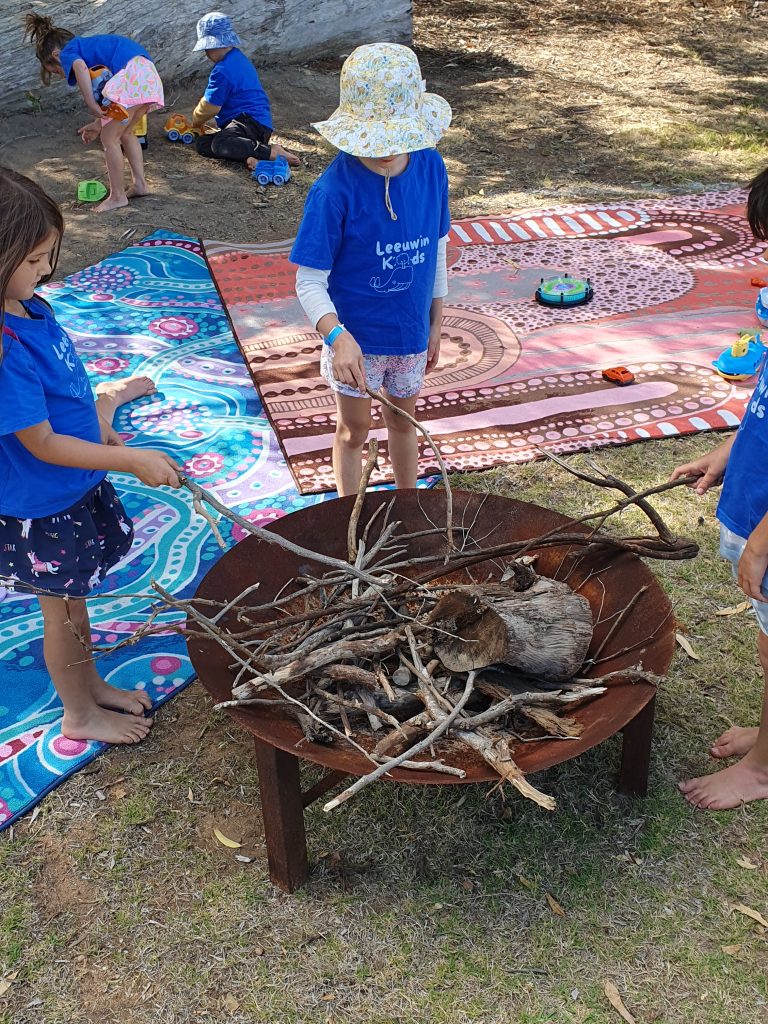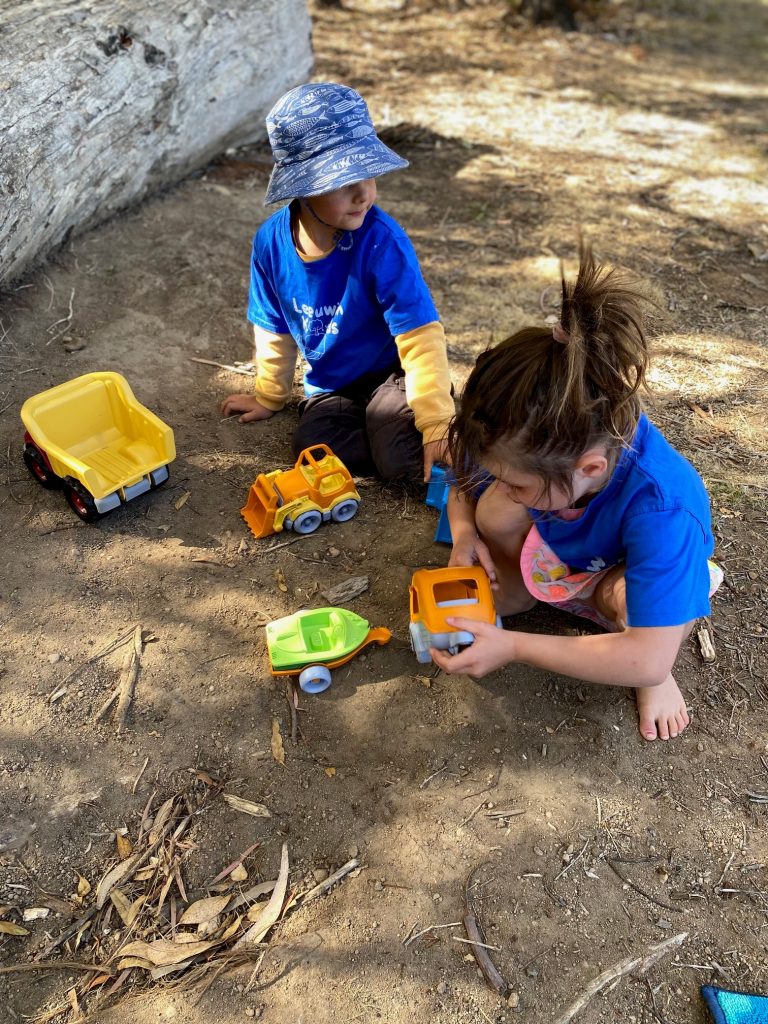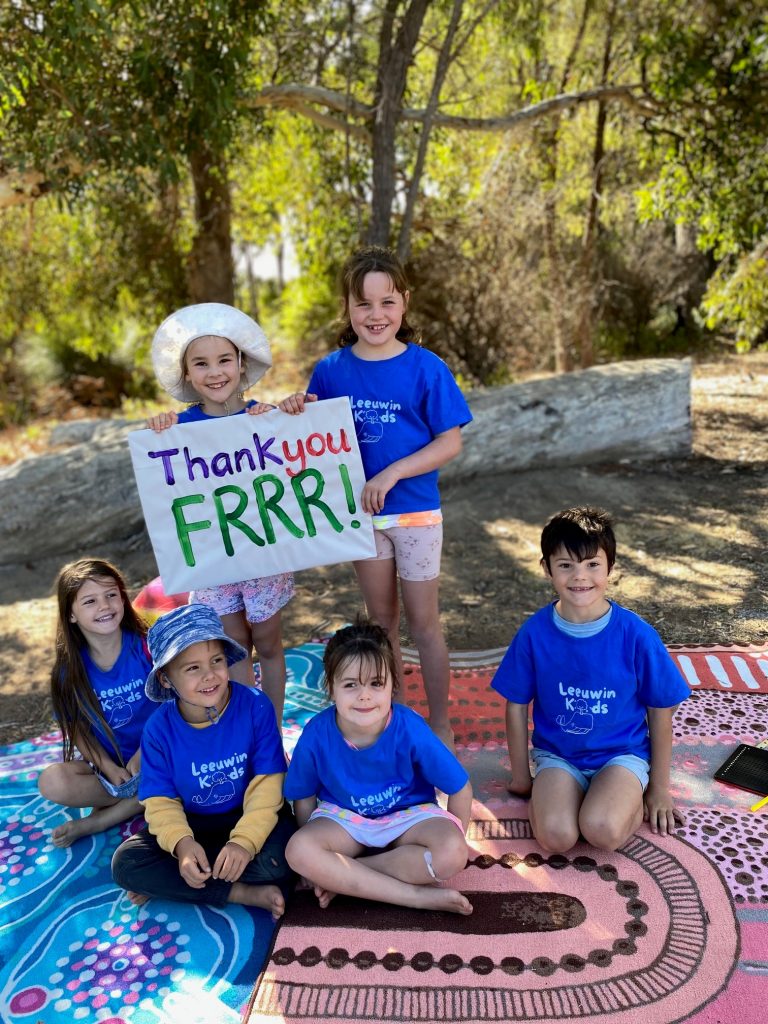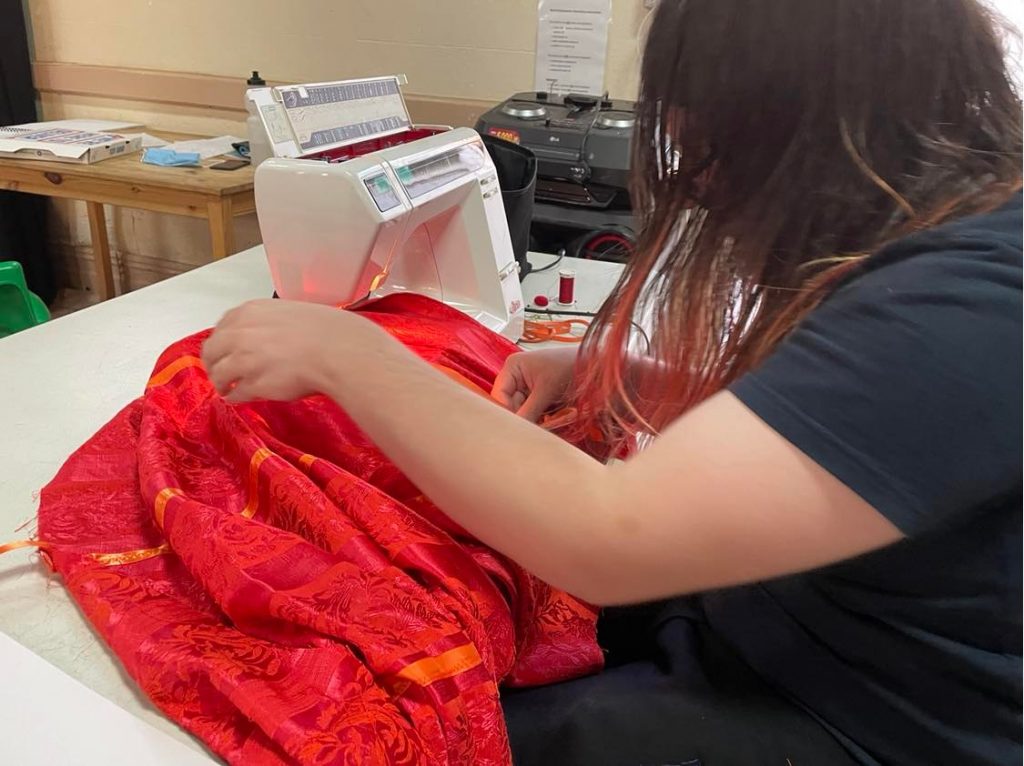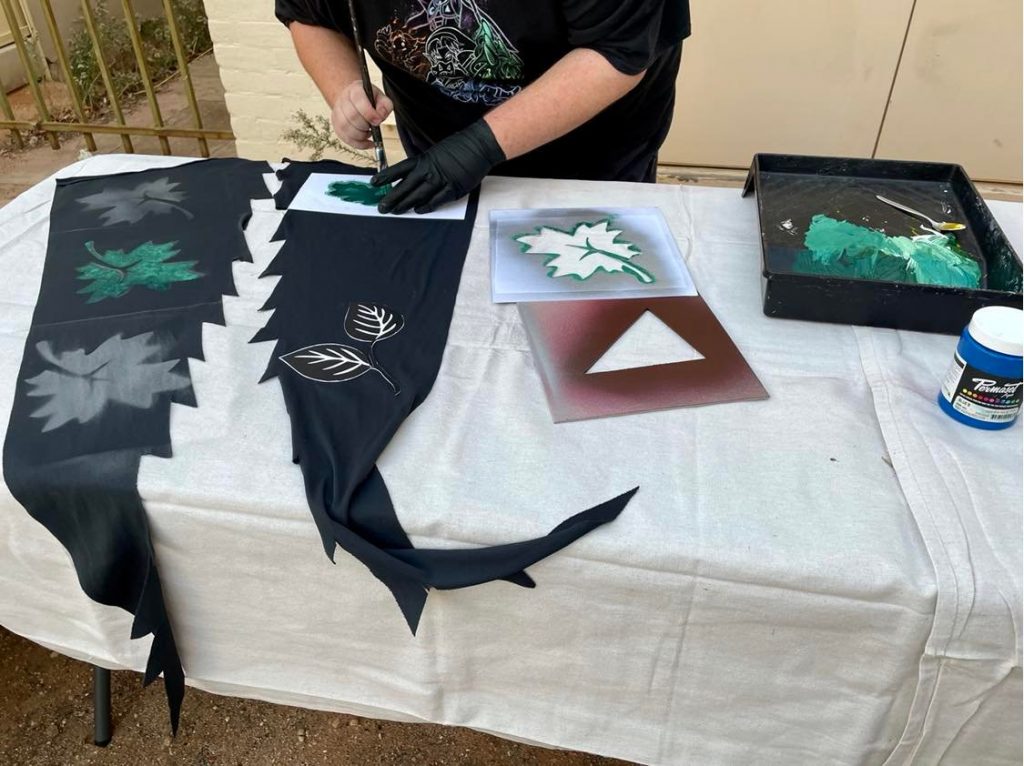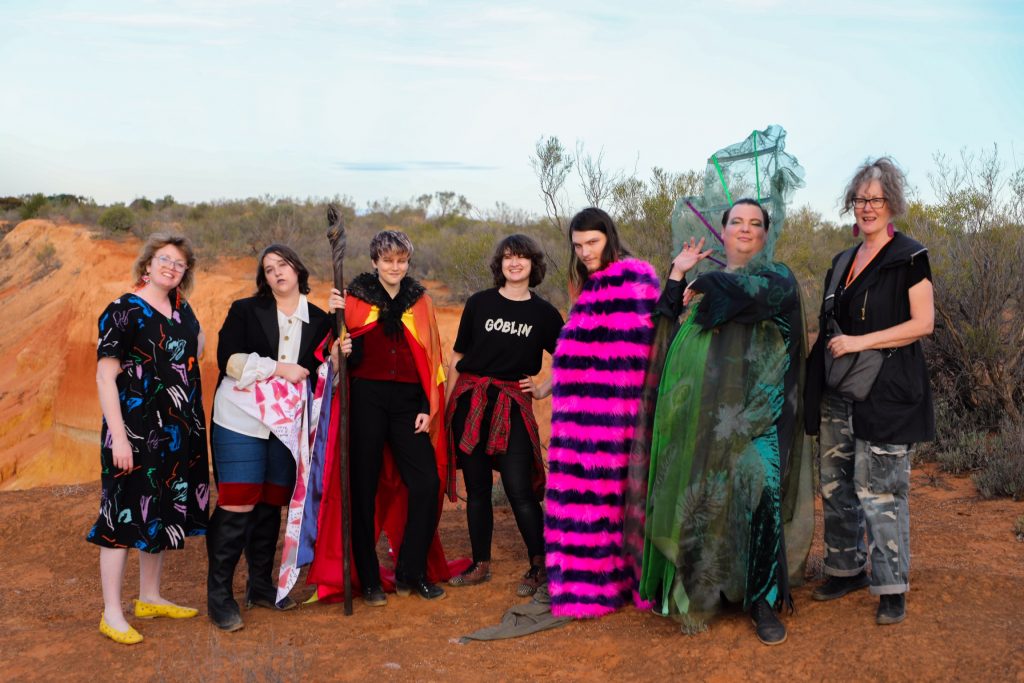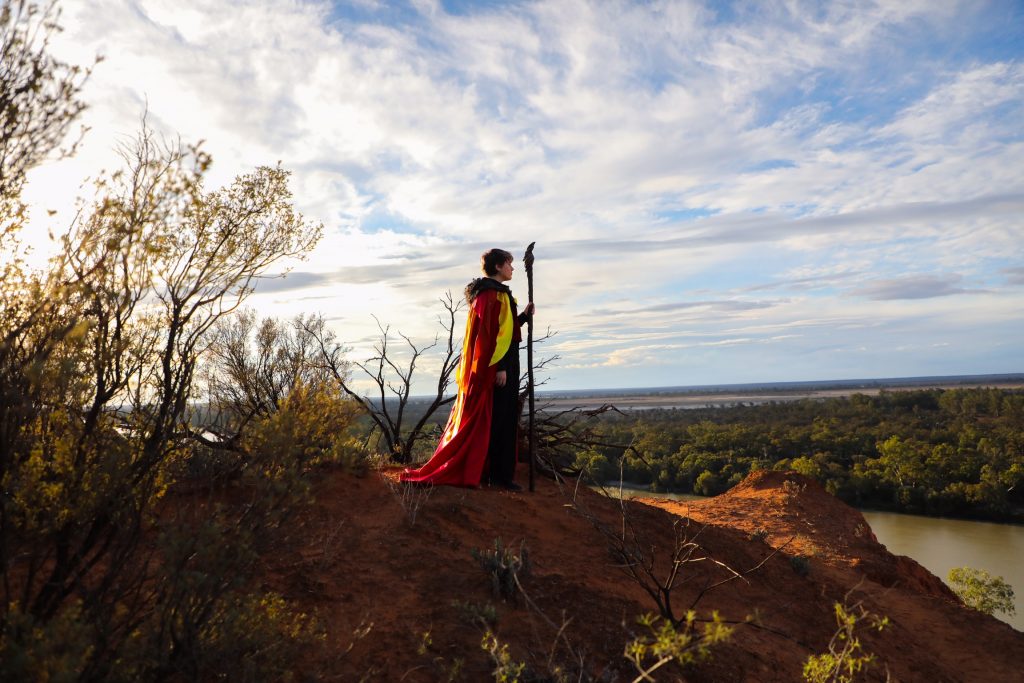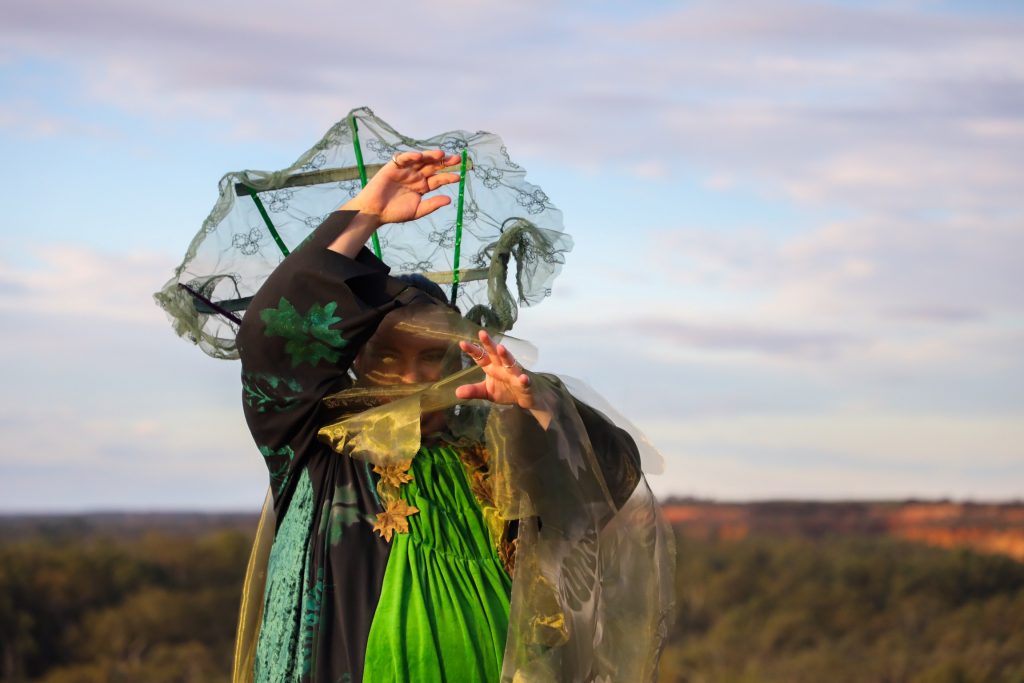Foundation for Rural & Regional Renewal (FRRR)
The Foundation for Rural & Regional Renewal (FRRR) and the Australian Rural Leadership Foundation (ARLF) have today announced the appointment of Nous Group to assess the impact of the Future Drought Fund’s Helping Regional Communities Prepare for Drought Initiative, which is funded by the Australian Government.
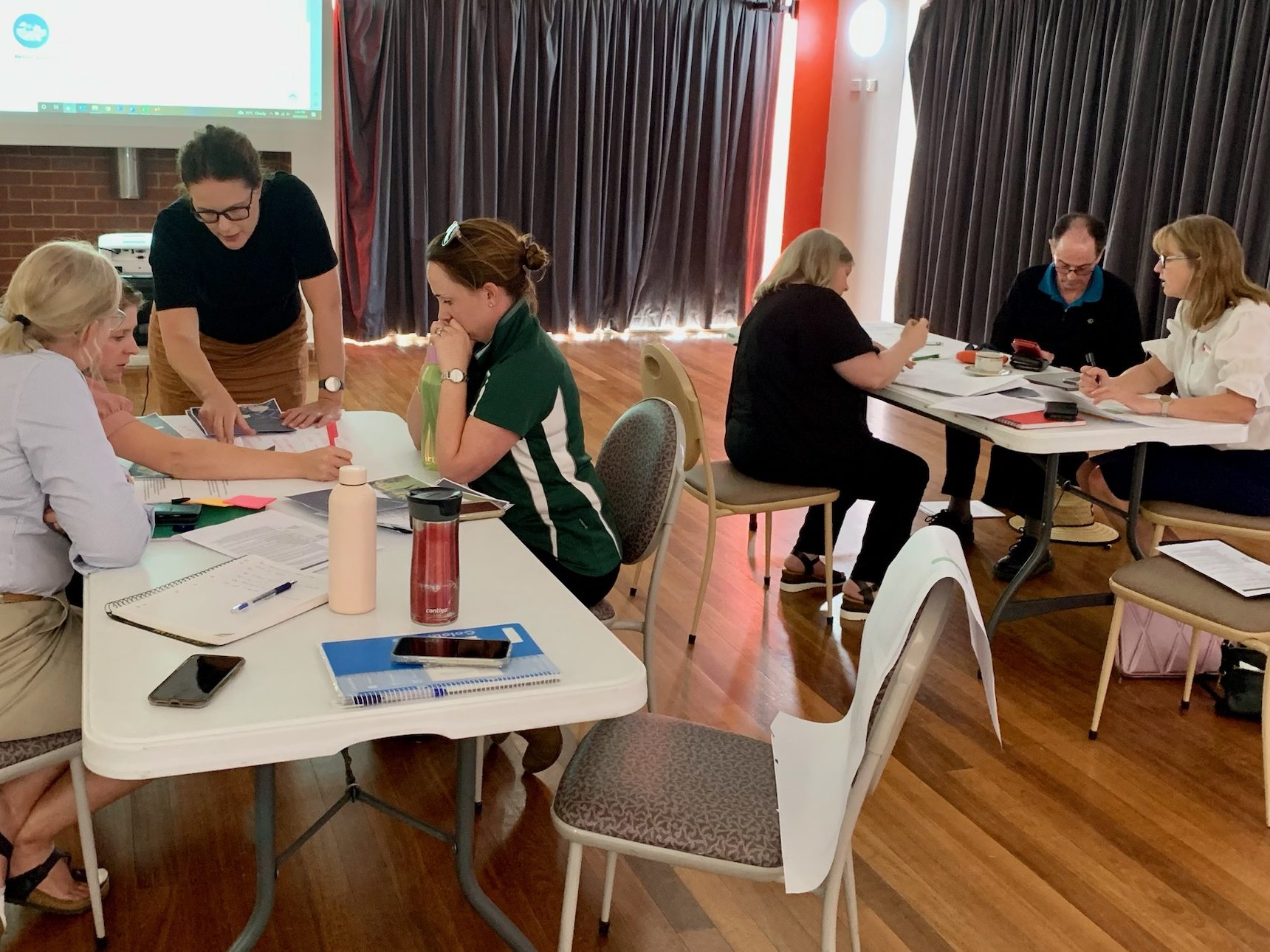
The Future Drought Fund’s Helping Regional Communities Prepare for Drought Initiative aims to build enduring resilience to the impacts of climate change and drought and to enhance the public good in agriculture-dependent communities. It focuses on building community capacity by strengthening social and community networking, support, engagement and wellbeing.
There are five parts to the Initiative, including the Community Impact Program, Small Grants, a Learning Network, Mentoring Program and Expertise Pool to support local groups implementing their projects, all of which will be evaluated.
While the evaluation will explore the outcomes of the Initiative, it will also provide valuable feedback on the various funding mechanisms employed and the impact of leadership development initiatives delivered. This will also reveal insights into the different ways that the Australian Government can invest in remote, rural and regional communities to address locally prioritised challenges. In total, $1.3 million will be invested in the process, reflecting the value that FRRR, ARLF and the Australian Government place on evaluation, something that is often not prioritised or funded.
Multi-year evaluation
The evaluation will take place over two and a half years and see Nous Group consult with the delivery partners, as well as other stakeholders, to develop the evaluation plan and then work closely with local leaders and with the delivery partners on the evaluation itself.
Phase 1 data collection and analysis is already underway, as the first tranche of funding has been awarded. An interim report will be prepared mid-2024, followed by workshops for community groups and stakeholders to unpack the learnings to date. Phase 2 of data collection will then get underway in August 2024, with the final report due September 2025.
FRRR’s Disaster Resilience and Recovery Lead, Nina O’Brien, says that there are great efficiency gains in having Nous Group undertake this work, as they are familiar with both the Future Drought Fund and with the delivery partners. “Nous Group supported the Department of Agriculture, Fisheries and Forestry (DAFF) to design the Measuring, Learning and Evaluation (MEL) framework for the overall Future Drought Fund, so they are intimately familiar with the overall aims of the various streams of work the Fund supports. They bring a depth of understanding and rigour to the process, while still being able to work closely with and relate to the groups delivering projects on the ground.
“What we are most excited about however, is that this process will help build the capacity of communities and stakeholders to engage with and ultimately undertake more formal evaluations of the projects and initiatives that they run. They can learn by doing. These skills will help local communities then better direct their limited resources, as well as be able to provide greater evidence to support funding applications for their initiatives.
“We look forward to working with Nous Group to co-design the evaluation approach and collect insights for the evaluation. We will also be connecting them directly with the local lead partner and other groups delivering projects in the community to understand the impact of the various elements of the Initiative, as well as bring together community groups and stakeholders to explore and interpret their findings,” Ms O’Brien said.
Matt Linnegar, CEO of the ARLF, says understanding the impact is becoming more important for people participating in initiatives, as well as those providing the support for it to happen.
“It’s increasingly important to understand the impact of initiatives like the Helping Regional Communities Prepare for Drought Initiative at depth and from multiple perspectives.
“This is because when we’re talking about leadership across regions and communities, we’re talking about people, relationships, networks and structures. Here, understanding the quantitative impact or intervention on the participant alone isn’t enough.
“It’s important to understand the individual and collective impact those people have on their regions and communities.
“As the ARLF continues to grow its work in the impact evaluation space, we highly value the collaboration with FRRR and work with Nous as an evaluation partner for this Initiative.”
Carlos Blanco, Nous Group Director, says Nous is excited to partner with the FRRR, ARLF and DAFF to collaborate with delivery partners, initiative participants and communities to help build even greater resilience within drought-prone communities.
“Nous has a long history of working with regional communities across Australia. We’re looking forward to co-designing and delivering an evaluation that strengthens the evidence base on how to empower remote, rural, and regional Australia to become more prepared for and resilient to the impacts of drought,” Mr Blanco said.
If community groups have any questions about the evaluation process, they can contact FRRR via futuredrought@frrr.org.au.
Mission Australia has worked in partnership with Mid Coast 4 Kids to deliver ‘The Common Approach’ training to build capability for a whole of community response to child youth wellbeing in the Mid Coast region.
The Mid Coast was dramatically impacted by the South Eastern Australia floods in 2022. The townships of Taree, Wingham and Gloucester were inundated or compromised with flood waters and structural damage cutting communities off for long periods. There was flood damage to farm lands, residential housing areas and outlying communities. This disaster compounded significant stress that has been experienced in the communities for an extended period due to the impact of prolonged drought, COVID-19 and bushfires.
As a result, early childhood centres and schools reported increased anxiety and trauma-related behaviours in children and young people, and the service system was not coping, with allied health and other support services reporting wait times of more than 12 months.
‘The Common Approach’ has equipped a range of members of the Mid Coast community with the skills to have quality conversations and build resilience to respond to the wellbeing needs of children, young people and their families, now and into the future. In total, 228 people including community service, health and education professionals, community volunteers and parents were trained to have evidence based, holistic conversations with children and young people about all aspects of their wellbeing.
Participants report increased confidence in being able to support children and young people to identify strategies to improve individual wellbeing. “Through this intervention we have equipped our community to share responsibility for promoting and supporting the health and wellbeing of children and young people in our community, via evidence informed practice,” says Program Manager Bree Katsamangos.
“Additionally, practitioners will benefit from the opportunity to engage in a bi-monthly Community of Practice to support ongoing development and practice.”
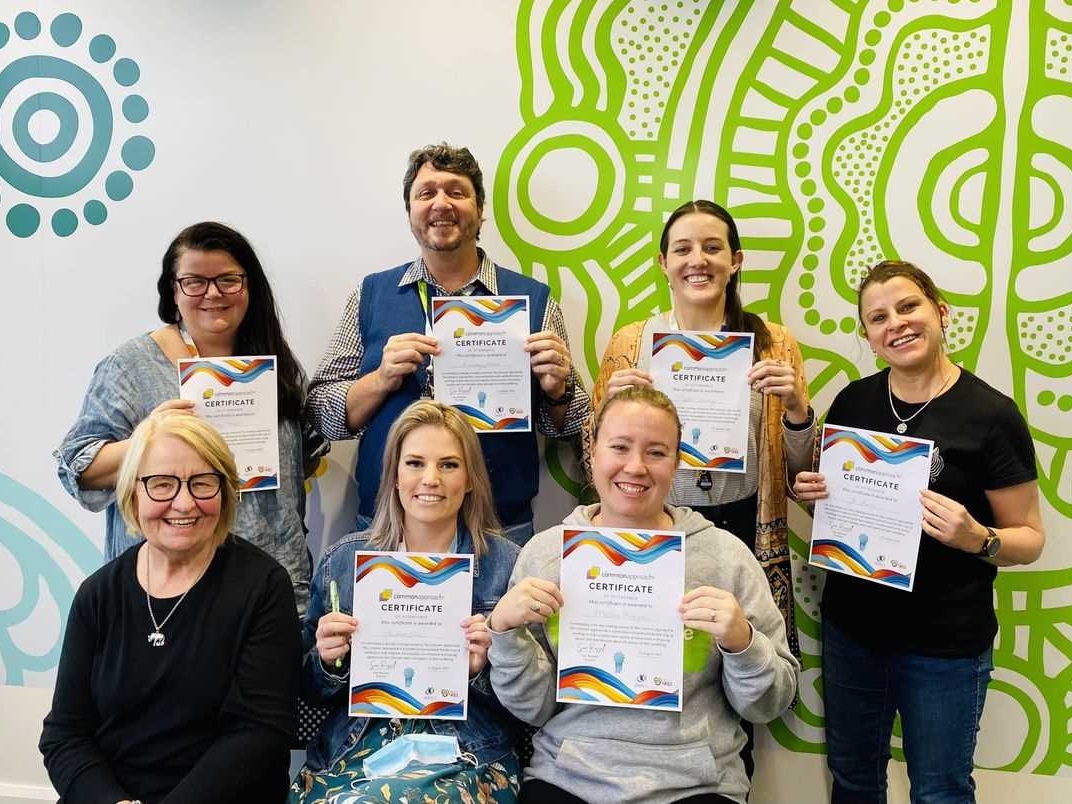
Ourschool connects students and alumni
Ourschool is a not-for-profit organisation that believes past students have a lot to offer current students when it comes to driving equity in education and positive, systemic social impact. In fact, Ourschool’s vision is that every Australian public secondary school has a thriving alumni community whose members are easily able to give back to their old schools. Since 2019, Ourschool has worked with school staff and alumni to inspire and support current students through meaningful engagements in school-based alumni programs.
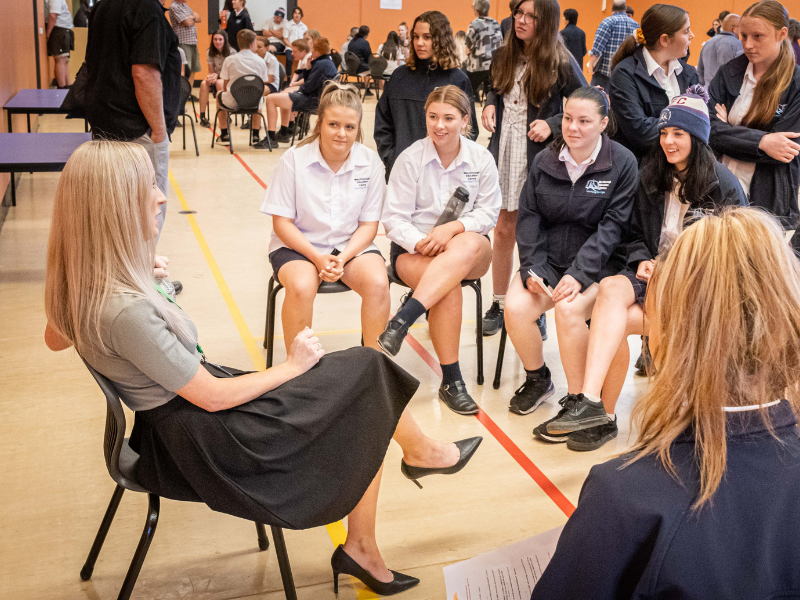
While principals generally see the value of alumni programs, limited funding in public school budgets makes it hard for school principals to invest resources into an alumni program’s establishment and growth. Chronic teacher and education support staff shortages at regional schools (thanks in large part to continued disruptions from COVID and teacher shortages) make it hard to plan alumni sessions and alumni engagement at schools.
But Ourschool is persisting and working hard to make it possible. They partner with FRRR, using a Not-for-Profit Fundraising Account to assist them to fundraise by offering tax deductibility for donations to help them deliver the program in more public secondary schools in rural and regional Victoria.
The funds are used to build program capacity and increase the number of regional schools receiving assistance from Ourschool. And it’s working, with the program operating in 14 regional schools, up from 10 in 2021. This involved employing more staff to deliver the services to the partner schools.
The reach is impressive — during FY22, 7,174 students were involved in 71 alumni career pathways or subject specific sessions, and 110 past students were involved in the sessions across the 14 schools in the Geelong and Ballarat regions alone.
As these alumni programs are “revolutionary” for public high schools, they require small steps, persistence, and a methodical approach to proving the worth of starting such a program. But even valued programs are faced with challenges.
One of Ourschool’s proposed solutions to this problem is the creation of a walkathon prototype school event to mobilise the fundraising capacity of a school’s community and its alumni to help fund and sustain each school’s alumni program. Ourschool is using some of the funds they’ve raised to develop an event resources and operations manual that will be packaged up for the partner schools to use and amend to run a high-quality, annual walkathon or other type of community-school event that raises funds to continue a school’s alumni program.
Check out this post to learn more about what Ourschool’s alumni activities look like.
Our thanks to United Care Glenelg for sharing this impactful story with us, made possible in part by a $5,000 Strengthening Rural Communities grant awarded in 2022, funded by the Ian Rollo Currie Estate Foundation.
With the cold weather well and truly settling in, the cost of living and energy costs skyrocket; many older residents are left to choose between eating or heating. For some, it can also be the loneliest and most isolating time of the year.
As a response, United Way Glenelg delivered much-needed Winter Care Packages to make residents feel valued as community members.
An essential part of ageing successfully is having enough energy for cooking, heating, cooling, cleaning, and leisure activities.
Nicole Carr, Executive Officer United Way Glenelg said agencies, when conducting home visits, often find residents rarely putting the heating on, choosing instead to sit in a cold room due to increasing costs, said Ms Carr.
Recent research said many older people will avoid using heating – risking their health and well-being to reduce costs.
“We are working very closely with local agencies to ensure we are identifying and reaching those most vulnerable and in need.”
“Being able to meet living costs helps prevent ill health or premature death, manage illness and chronic disease, sustain social relationships, and support positive mental health,” Ms Carr explained.
Delivery of the Care Packages helps in some small way to improve morale and alleviate some of the stresses associated with winter.
Assembled by the Standing Tall group at Heywood & District Secondary College, the students and their mentors, packed 200 boxes with an assortment of non-perishable food and personal care items, a food voucher for purchasing perishable items such as meat, fruit and vegetables, an activity, reading material, a special treat and a personal note from Merino Consolidated Primary School.
“We’re thrilled to include for the first time, a meal voucher. Valued at $20, the voucher enables the resident to go to one of five Hotels in the Glenelg Shire and share a meal with a family member or friend.”
“We approached All Saints Outreach with the proposal to sponsor the meal vouchers and they jumped at the opportunity to help!”
Another special item was the inclusion of homemade knitted blankets, hats and scarves with Julia Street Creative Space and generous local knitters jumping at the opportunity to contribute.
“We’ve been overwhelmed by the generosity. So much so we’ve started collecting for next year’s packages.”
The campaign for funding the Winter Care packages began early in March when people were encouraged to “turn off the heat,” creating a lived experience albeit for a short period and generating an understanding of the struggles facing many living in the Glenelg Shire.
Ms Carr said it takes a collaborative approach to support a community.
United Way Glenelg tipped in $10,000 from its Lewis Court Fund to match donations made by individuals.
“We also sought out grants from philanthropic organisations and were pleased to receive generous contributions from FRRR, The Ian Rollo Currie Estate Foundation, All Saints Outreach and Wannon Water.”
From anecdotal evidence, by the way of the messages of gratitude from the many letters, phone calls and cards received, we know the packages are greatly appreciated in supporting older people with basic needs, preventing them from disconnecting from the community and making them feel valued.
Sandra, an 84-year-old widow said the package was a lovely surprise:
“It was very much appreciated. All useful and thoughtful goodies. And the blanket is a huge plus. I am having an operation on my hand tomorrow so the Readers Digest books will be easy to hold. The vouchers will be used. Thanks to each member.”
And Joan from Casterton said, “it’s lovely to know we are still thought of as we get older.”
“This is our small part, but we are relying on the entire community to look out for one another. Look out for your neighbours, your relatives and friends, anyone that needs a helping hand,” Ms Carr explained.
“These packages will make Winter a little more bearable.”
Recipients were identified through United Way Glenelg Agency partners including Glenelg Shire Council Aged and Disability unit, Portland District Health Palliative Care and District Nursing units, Portland District Health Telecare, Dhauwurd Wurrung Elderly & Community Health Service Inc, Winda Mara, Dartmoor Bush Nursing Centre, Merino Bush Nursing Centre, Casterton Memorial Hospital and St Vincent de Pauls.
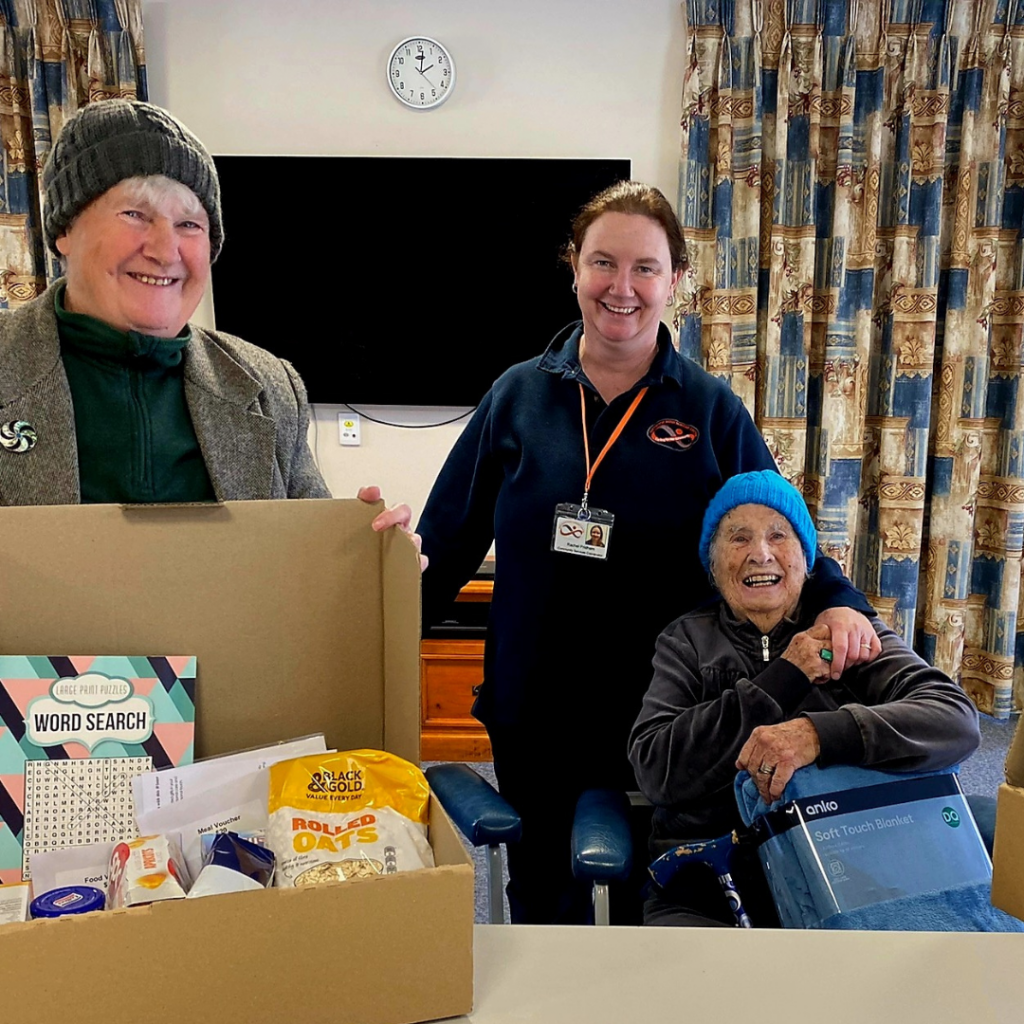 Dianne Carlile, Dartmoor Bush Nursing Community Services Coordinator Rachel Pridham and Val Colley.
Dianne Carlile, Dartmoor Bush Nursing Community Services Coordinator Rachel Pridham and Val Colley.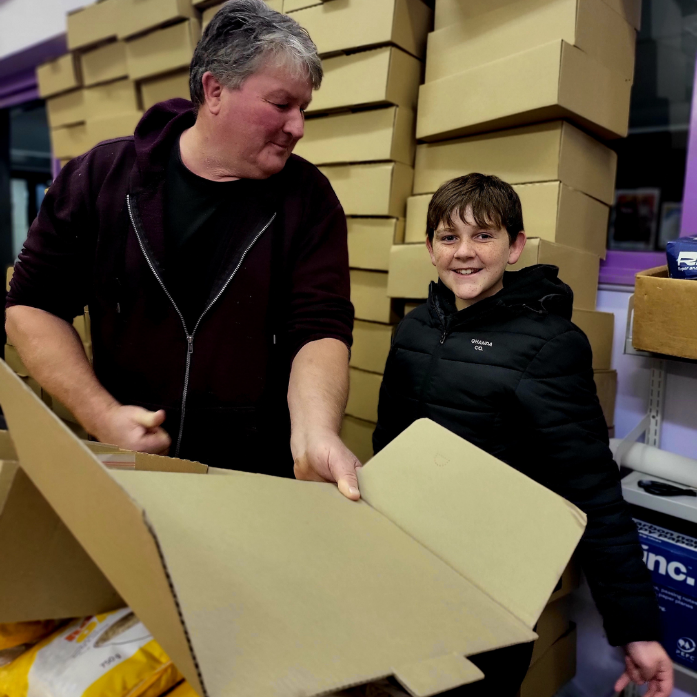 Standing Tall Mentor LJ Bell-Cooper (mentee) and Vin Gannon (mentor) assemble the Winter Care Packages.
Standing Tall Mentor LJ Bell-Cooper (mentee) and Vin Gannon (mentor) assemble the Winter Care Packages.
Augusta is a town in south-west WA, 40km from the nearest town of Margaret River, which is a larger service centre. Whilst traditionally a town with a reputation for having a high proportion of retirees, numerous young families have returned to Augusta where they grew up, or have taken a sea-change post-COVID.
When the only childcare centre closed in Augusta, families were faced with lengthy travel times to Margaret River, and this has had a flow-on impact on employment, limiting opportunities to access work, and for employers’ to fill staff vacancies.
A group of committed parents, local business owners and early childhood educators got together to set up an incorporated association to open a community-run, not-for-profit centre with 24 places to meet the urgent need for childcare. They successfully navigated the requirements and approvals of the Education Care Regulatory Unit and the Federal Government Childcare Subsidy program however, increased building costs compounded by development approval delays means the new centre is yet to open.
The best laid plans of mice and men…
Initially the project intended to purchase resources to outfit the new centre. Instead FRRR was able to work with the group to progress a variation to the original project, to help them adapt to their changing circumstances.
The group instead launched a vacation care service for children, kindy to 12-year-olds, filling a gap in the community’s childcare needs. They used a $10,000 Strengthening Rural Communities grant, funded by FRRR, to purchase educational resources that are of a higher quality and more durable than the donated and second-hand older toys and cheaper equipment that had previously been used.
These resources will last longer and extend the children’s imagination, and have added real value to the program and been much loved by the children. They will also be able to used by the new childcare centre when it eventually does open.
Kylie Lucas, Treasurer of the Augusta & Districts Childcare Centre, noted in their acquittal: “We are very grateful for the donors and team at FRRR for enabling our project to be delivered with better resources, and it has made a real difference to the kids, working families and community members in our little town. The committee appreciated FRRR’s flexible and supportive approach.”
Contribute to the Change was one of the project ideas developed at the 2021 Heywire Ideas Lab. The group of young people who developed the idea wanted to see mental health support become destigmatised and delivered in ways that were personalised to meet the needs of young people.
Riverland Youth Theatre (RYT), based in Renmark SA, adapted the Contribute to the Change idea to deliver a costume design project for young queer people in the Riverlands. Their project was called There I Am, and encouraged young queer people to image and create the best version of themselves through imaginative and colourful costumes.
RYT identified that within the region there were few safe spaces for LGBTQIA+ youth to explore their identity, nor groups aimed at supporting them. This resulted in a decline in mental health, and young people leaving the community because they lacked accepting and supportive adults and peers in their community. RYT developed There I Am to address this issue, aiming to create a safe, supportive environment where young struggling LGBTQIA+ youth could come and explore their authentic selves.
Participants spent five days working with a costume designer to create a costume that told their story and helped them imagine the person they wanted to be. The project built on the idea that self-expression through clothing can be an affirming and validating act for queer youth who are exploring their identity.
“I feel like my outfit kind of says ‘hey I’m here, I might not be able to talk, but I am still a person, and I can be present here, even if I don’t feel like it that much.”
Rowan, one of the youth participants, said that their costume helped them feel in control in a world where they have little control. “I kind of based it on a part of myself that I’ve suppressed over the years and bringing that into the light. With my costume it’s about being able to control whatever I want and it can all go perfectly.“
Projects such as There I Am have begun to establish Riverland Youth Theatre as a safe space for queer young people in the Riverlands. Youth have a place where they can seek support and be their authentic selves.
The FRRR ABC Heywire Youth Innovation Grants have continued to support the development of this safe space for LGBTQIA+ youth in Riverlands with another grant in 2022 for The Allies Project, which they once again adapted to their specific local context. Their project, Ally Merit Pins and Awards, empowers teens to decide what an ‘ally’ is and makes allies more visible.
The concept was developed by a young non-binary student who suffered from homophobic bullying and spoke of their exhaustion of not knowing which adults were safe or supportive. They proposed the merit badges as a way to encourage schools to be proactive in creating safe spaces for queer students and empower the queer community within their school. The project was awarded a $10,000 Heywire Grant and will be delivered in 2023, continuing to ensure that there a place within the Riverlands where LGBTQIA+ youth can find their tribe.
The Mooloolah Community Centre is the home and work hub of Mooloolah Valley Community Association Inc, located on the Sunshine Coast in Queensland. The Centre is run by a Management Committee of 10 volunteers from wide and varied backgrounds including finance, defence, nursing, social work, local government and administration, and there are a team of volunteers who support the Centre by doing tasks from garden maintenance to assisting in the Op Shop. Everyone at the Centre works for the benefit of the Mooloolah community, and the positive flow-on effects are felt throughout the Mooloolah Valley postcode area.
In February 2022, the flooding closed all roads into the town, cutting it off for four days and causing a loss of power across the area. The lack of a reliable power source during this disaster revealed critical vulnerabilities in the community for being able to charge phones and stay in touch with loved ones. Additionally there was no hot water and the Community Centre couldn’t open.
After receiving $25,000 in Round 2 of the Rebuilding Futures program, funded by the Suncorp Group, the Community Centre has now securely installed a solar battery pack ready for any future disasters or power outages. The installation of the solar batteries has completed a significant preparedness project by this group, who over the last year, have added emergency lighting, directional emergency lighting and evacuation alarms so the community can be prepared and therefore more resilient in times of extreme weather events.
The Community Centre says it is ready to support the needs of the community in times of distress, including having the Op Shop open to allow people to obtain emergency clothes if required, and enabling the Welfare Officer to operate and offer vouchers for food and fuel. The website has been updated with a new ‘Community Resilience Service’ that promotes an offering of a place of refuge during disaster, including the basics like a hot drink, charging phones, using the internet and much more.
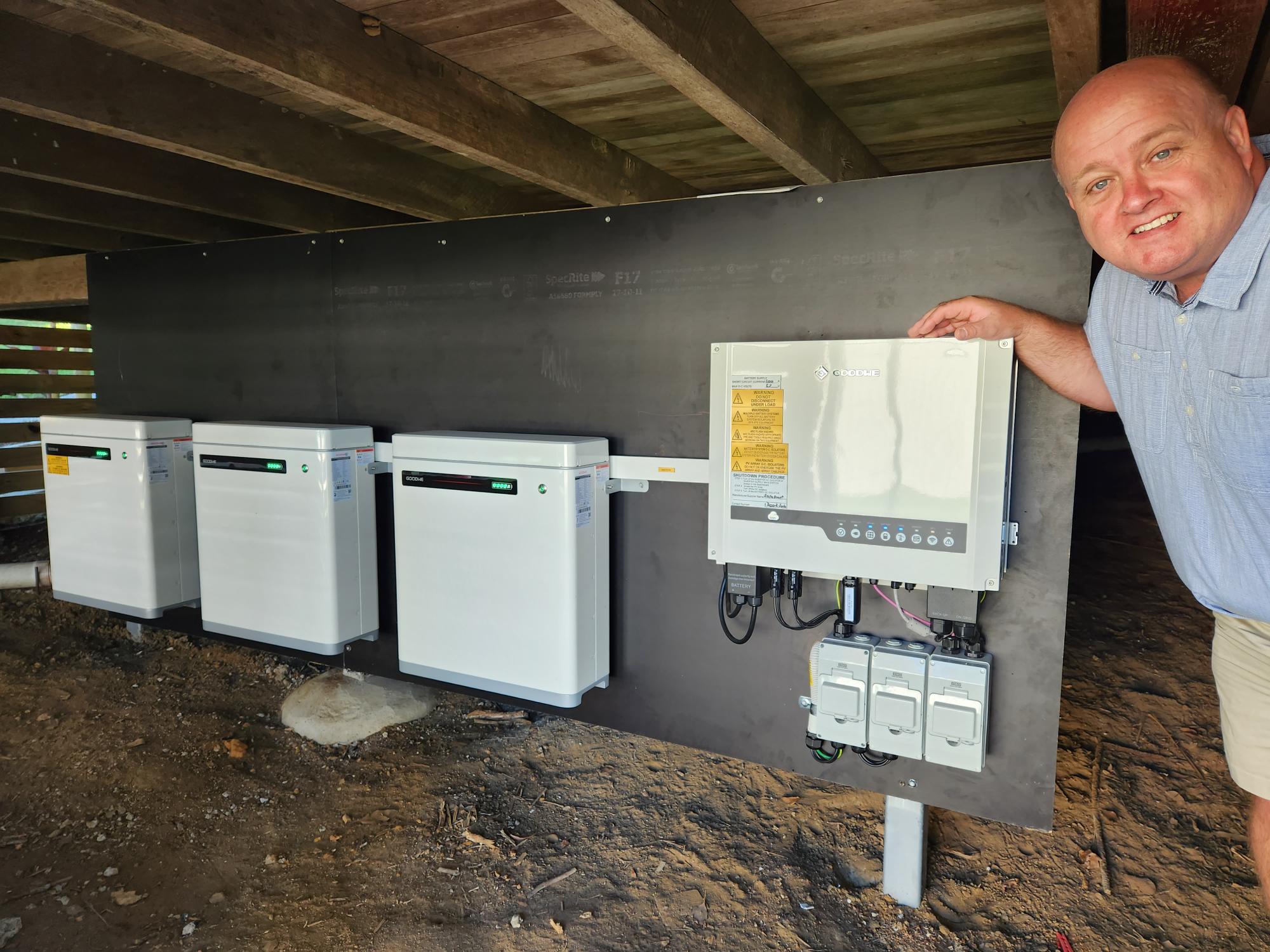
Mooloolah Valley Community Association Inc’s Events & Grants Officer, Jason Carroll
Grants up to $20,000 available for recovery projects
Local community groups and not-for-profits in rural Victorian communities impacted by 2022-23 floods are encouraged to apply for grants up to $20,000 for projects that will support their community’s recovery.
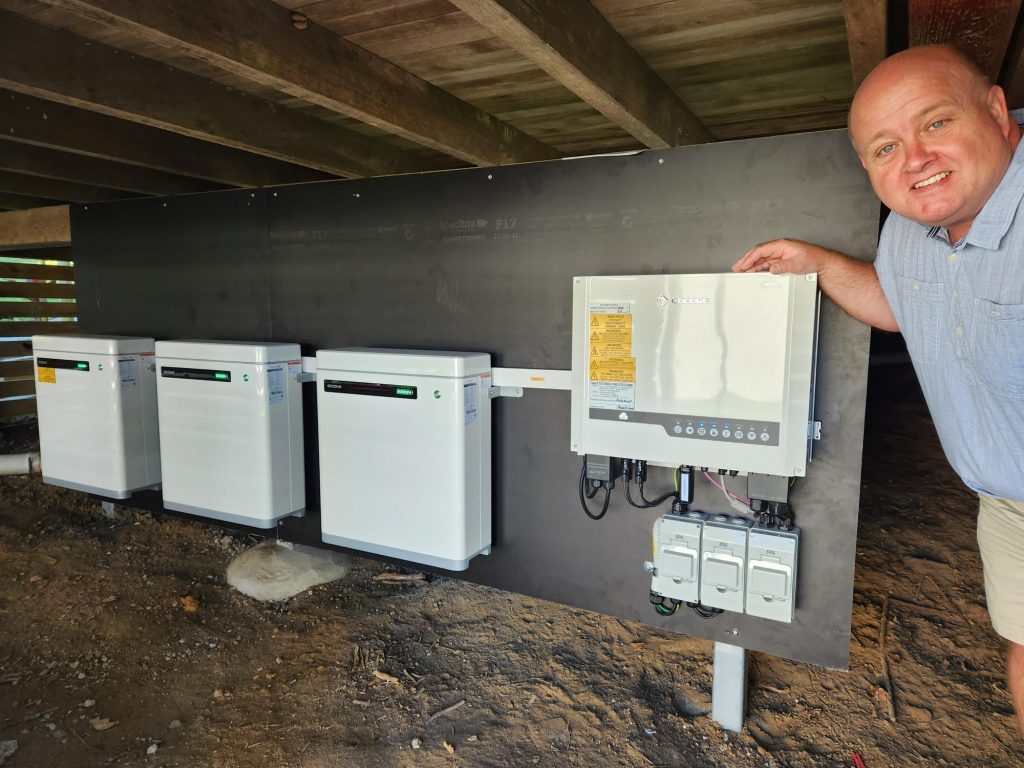
In partnership with Suncorp and AAMI, FRRR is offering $300,000 for initiatives that build resilience and support medium to long-term recovery of communities affected by the flooding and storms that occurred in specified LGA’s between 6 October 2022 and 13 January 2023.
Funded through the Rebuilding Futures program, these responsive grants are available for proactive initiatives that are community-led.
Nina O’Brien, FRRR’s Disaster Resilience & Recovery Lead, said that extreme weather events, like the flooding and storms experienced by rural Victorian regions late last year, affect every community member, especially those who are most vulnerable and rely on community organisations for support.
“Different groups within the community, such as those living with disability, homelessness or who speak English as a second language, will be impacted differently, and as such, will have their own needs in terms of building resilience and how they can prepare for future disaster events.
“We encourage community groups to be inclusive with their initiative ideas and consider how their project can support community members from all nationalities, socio-economic and cultural backgrounds.
“We also encourage community groups to think outside the box when it comes to infrastructure and equipment projects by considering resilient materials and harnessing clever use of design to decrease future impacts of natural disasters,” Ms O’Brien said.
Suncorp’s Group Executive People, Culture & Advocacy, Fiona Thompson, said that natural disasters, such as the Victorian floods, have devastating impacts that are complex, context-driven and long-lasting.
“This is the third disaster-affected region that we’ve supported through this program over the last couple of years, so we know the impacts in each place are different. One thing is always the same though; local people are best placed to know what the needs and priorities of their community, especially following a natural disaster event.
“Thanks to our partnership with FRRR, we’re pleased to be able to provide flexible funding that means communities can determine how best to address the medium to long-term recovery, resilience and preparedness needs and priorities for their region,” Ms Thompson said.
A Grantseeker Workshop, including a Q&A, on the Rebuilding Future’s grant program will be held online from 12 – 1pm AEST, Wednesday 7 June 2023. Register for the Grantseeker Workshop here.
Applications close 6 July 2023.
Previous projects funded through the Rebuilding Futures program include:
- During the floods in February 2022, Mooloolah Valley, QLD, experienced intermittent loss of power that impacted the community’s access to lighting, hot water and technology. To help the community prepare for future disaster events, the Mooloolah Valley Community Association Inc used a $25,000 grant to purchase and install three batteries that can be used to supply power to the region. The batteries are able to store energy from the Centre’s existing solar panels. The grant also funded fencing to ensure the new batteries are stored safely and securely. Thanks to the community’s resilience and preparedness, the batteries were able to keep the community’s power running during the two electricity outages that Mooloolah Valley has experienced since the batteries were installed.
- Following the NSW and QLD floods in 2021, Mission Australia and Mid Coast 4 Kids partnered to respond to child and youth wellbeing across the Mid Coast region. The partners used a $10,811 grant to deliver training to local community service, health and education professionals, volunteers and parents. Their aim was to ensure they were equipped with the skills to have quality conversations and build resilience to respond to the wellbeing needs of children, young people and their families.
For more information about which regions are eligible, the type of projects that can be funded, and to register for the Grantseeker Workshop, visit our Rebuilding Futures webpage.
In this quarter’s update for FRRR’s partners and supporters, we’re focussing on the big difference that small grants make. Read about:
- A very impactful tractor funded in South Australia’s Flinders Ranges
- How you can support RRR communities now, and for the long-term before EOFY
- Synergies between FRRR and our partner GlobalGiving’s funding philosophy
- Insights from the Bush
- Our Progress – Q3 FY 2022/23
- Partnering opportunities to activate great projects
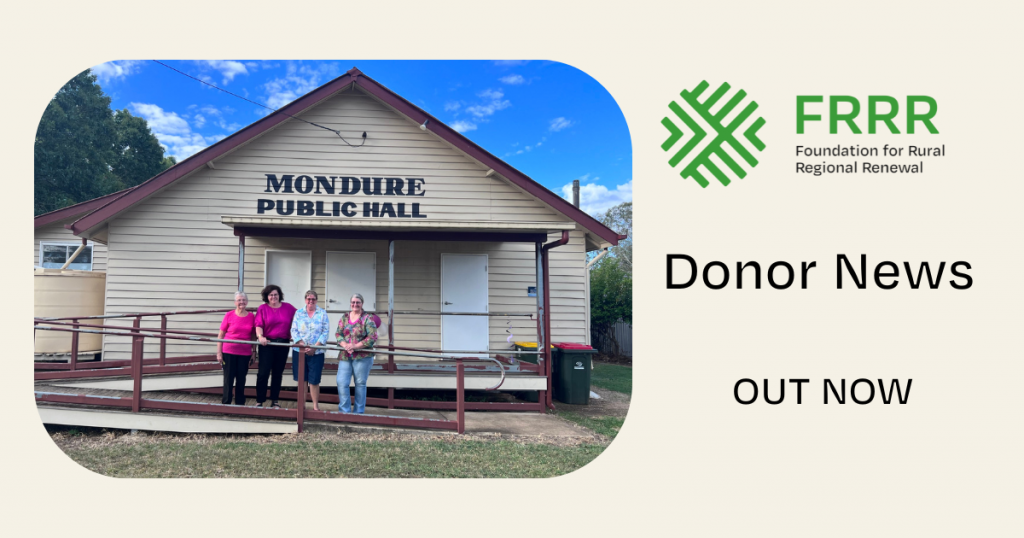
Local not-for-profits (NFPs) across the Central West NSW and WA Great Southern region are being encouraged to submit an Expression of Interest (EOI) to partner with the Foundation for Rural & Regional Renewal (FRRR) and the Australian Rural Leadership Foundation (ARLF) to lead the Future Drought Fund’s Helping Regional Communities Prepare for Drought Initiative’s Community Impact Program in their region.
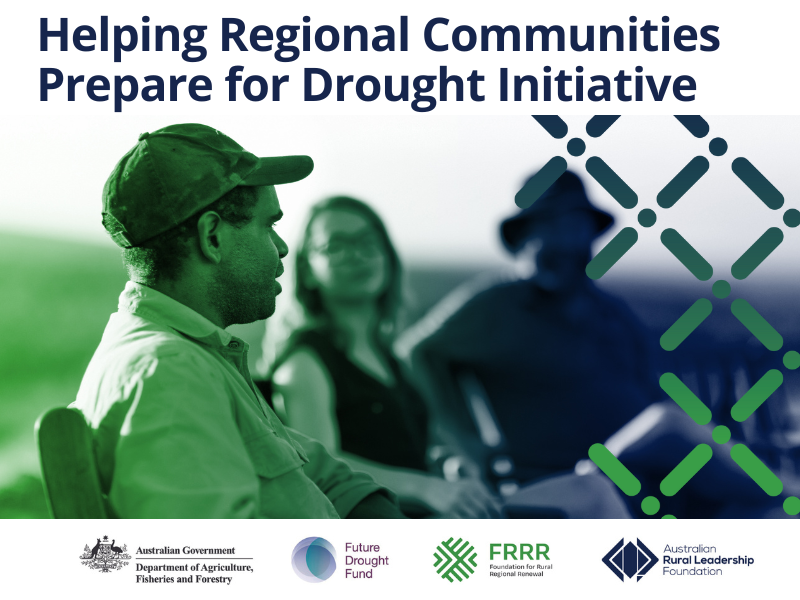
The Initiative seeks to help agriculture-dependent communities in regions across remote, rural, and regional Australia that are vulnerable to the impacts of drought become more prepared for and resilient to these impacts.
It is part of the Australian Government’s $29.6 million investment in drought resilience initiatives over three years and builds on the Future Drought Fund’s previous Networks to Build Drought Resilience program (led by FRRR) and the Drought Resilience Leaders program (led by ARLF).
There are two main components to the program:
- Community Impact Grants: Grants between $200,000 and $500,000 for projects that strengthen community networks, capabilities and facilities that support drought preparedness; and
- Community Leadership Activities: AARLF will offer a range of funded leadership development activities to support community members to develop their leadership skills and equip them with the networks to respond to drought preparedness in their community.
Nina O’Brien, FRRR’s Disaster Resilience and Climate Solutions Portfolio Lead, said that this a great opportunity for community groups in Central West NSW and the Great Southern region of WA to proactively strengthen drought resilience across their regions.
“Rural communities are better able to withstand the impacts of events like drought when they are strong and well connected. The overall aim of this program is to ensure communities are better prepared for future.
“But we know that looks different in each community, which is why we are looking for a local lead partner. They can then work with other community members and organisations to identify what local action will be most appropriate. FRRR staff will be there to support the process and we’ll also fund a facilitator to work with the community to get the best outcome possible.
“The grants can fund projects, events, initiatives, training, capability building and small-scale community infrastructure projects and we’re really keen to make sure that First Nations communities and younger people are also engaged in drought resilience planning and action.
“We have already funded some impressive projects in other ag-dependent communities, including training and awareness-building activities to develop skills and knowledge to face the unique challenges caused by drought, preparedness upskilling and capacity building for local NFPs, and youth-focused activities such as field training and skills development programs,” Ms O’Brien explained.
As part of the program, ARLF will offer several complementary Leadership Development Activities at no cost to the successful applicants. These are designed to strengthen the leadership capabilities of communities to build individual and community drought resilience.
ARLF’s Chief Executive Officer Matt Linnegar said that because every lead organisation and region will be at a different point in their resilience journey, ARLF has a number of options that communities can tap into.
“We have five leadership development activities, ranging from intensive residential leadership programs to a series of deep-dives into particular leadership topics to group coaching. Each is underpinned by the concepts of adaptive leadership, resilience and network leadership.
“Applicants will need to include their preference for leadership development activities when they lodge their express of interest for the Community Impact Program, and we will work closely with applicants to refine their preferences as we move through the collaborative project design phase,” Mr Linnegar explained.
Expressions of Interest close 9 June, with shortlisted groups commencing co-design in their communities in August and funding confirmed in November 2023. Groups will have until June 2025 to implement the projects.
Interested groups can learn more about the program and lodge their EOI here.

